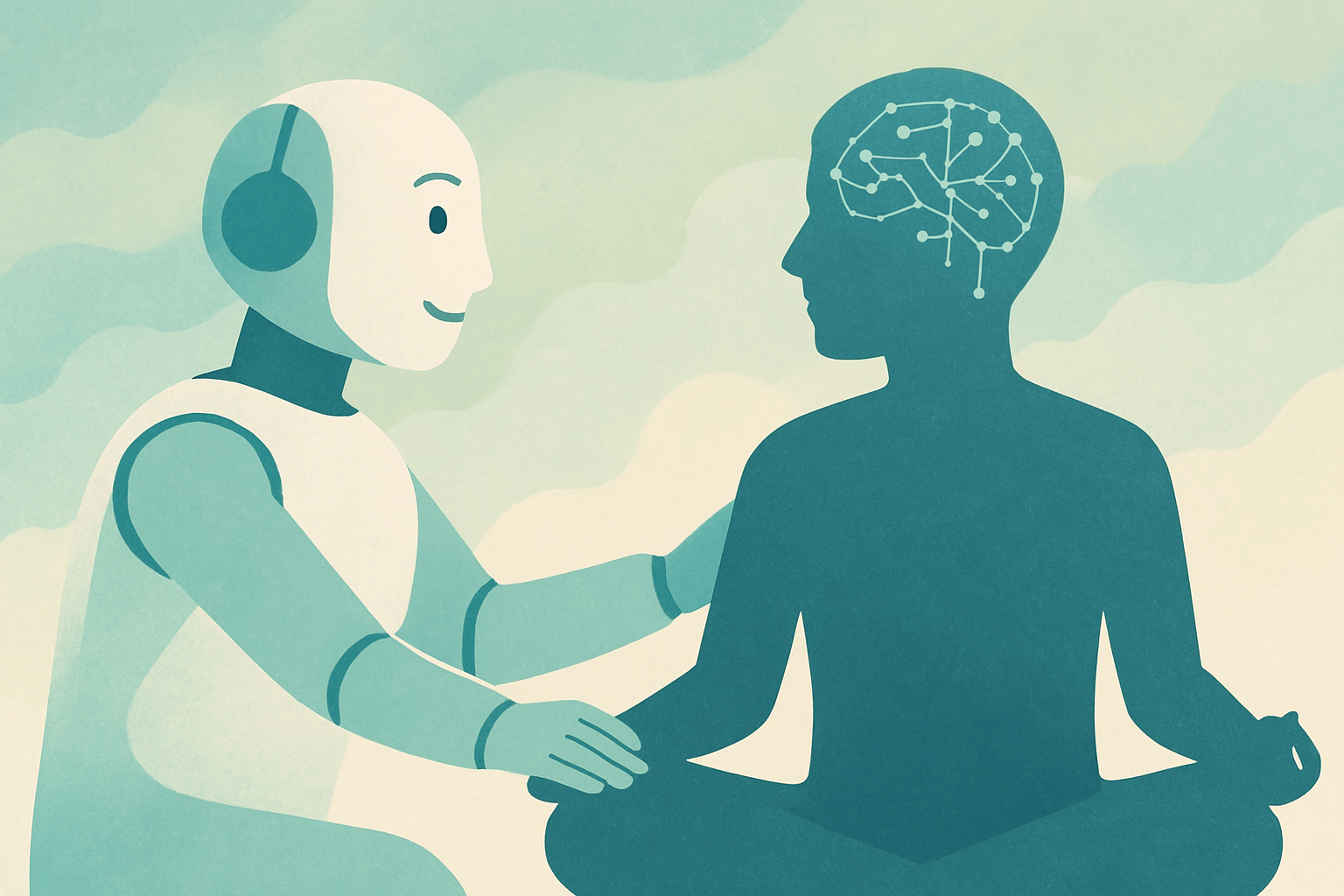
AI for Mental Health and Wellbeing: Apps and Tools for a Healthier Mind
Introduction: AI Offering Accessible Solutions for Mental Wellness
The global burden of mental health conditions is significant, and access to timely, affordable support remains a challenge for many. Artificial Intelligence (AI) is emerging as a promising avenue to bridge this gap, offering innovative and accessible tools to support mental health and wellbeing. From AI-powered chatbots providing empathetic conversations to sophisticated apps delivering personalized mindfulness exercises and early detection capabilities, technology is playing an increasingly important role in how we approach mental wellness. This article will explore the various ways AI is being utilized in mental healthcare, highlighting specific applications, potential benefits, and crucial ethical considerations. Affiliate opportunities may exist for promoting reputable AI-driven mental health apps or platforms that align with ethical practices.
AI-Powered Mental Health Chatbots: Conversational Support and CBT Techniques
One of the most visible applications of AI in mental health is the development of chatbots designed to offer support and deliver therapeutic techniques.
- How They Work: These chatbots use Natural Language Processing (NLP) to understand user input and provide relevant, empathetic responses. Many are programmed with principles of Cognitive Behavioral Therapy (CBT) or other evidence-based approaches.
- Benefits:
- Accessibility: Available 24/7, offering immediate support without the need for appointments or travel.
- Anonymity and Reduced Stigma: Users may feel more comfortable discussing sensitive issues with a non-judgmental AI.
- Scalability: Can reach a large number of individuals simultaneously.
- Mood Tracking and Pattern Recognition: Can help users identify triggers and patterns in their emotional states.
- Leading Tools (Examples & Affiliate Opportunity):
- Woebot: An AI chatbot that uses CBT techniques to help users manage symptoms of depression and anxiety.
- Wysa: An AI-powered “emotionally intelligent” penguin chatbot that offers empathetic conversations and self-help tools. (If these platforms have affiliate programs, they could be ethically promoted.)
AI for Stress Reduction and Mindfulness Apps: Personalized Paths to Calm
AI is enhancing stress reduction and mindfulness applications by personalizing content and guidance to individual user needs.
- Personalized Content Delivery: AI algorithms can analyze user data (e.g., reported stress levels, sleep patterns, preferred meditation styles) to recommend specific guided meditations, breathing exercises, or sleep stories.
- Biofeedback Integration: Some apps are exploring integration with wearable devices to monitor physiological stress indicators (like heart rate variability) and offer real-time interventions or suggestions.
- Adaptive Learning: The apps can learn over time what works best for an individual user and adjust content accordingly.
- Leading Tools (Examples & Affiliate Opportunity):
- Headspace: Offers a vast library of guided meditations, mindfulness exercises, and sleep content, with AI potentially playing a role in content recommendation.
- Calm: Similar to Headspace, provides resources for sleep, meditation, and relaxation, with opportunities for AI-driven personalization. (Affiliate programs for these well-established apps are common.)
AI in Early Detection of Mental Health Issues
AI holds significant potential for identifying early warning signs of mental health conditions, often before individuals themselves are fully aware or seek help.
- Analyzing Digital Footprints: Researchers are exploring how AI can analyze patterns in speech (tone, pace), text (language used in social media or messages), and even online behavior to detect subtle indicators of conditions like depression, anxiety, or psychosis.
- Voice Analysis: AI can identify changes in vocal biomarkers that may correlate with mental health status.
- Facial Recognition and Expression Analysis: While ethically sensitive, AI can analyze facial expressions for emotional cues.
- Importance of Early Intervention: Early detection can lead to earlier intervention and better treatment outcomes.
AI for Personalized Therapy and Treatment Plans (Emerging Potential)
While still in earlier stages of development and requiring significant research and ethical oversight, AI could one day contribute to more personalized therapy and treatment plans.
- Data-Driven Insights: AI could analyze vast datasets of patient information, treatment responses, and genetic markers to help clinicians identify the most effective therapeutic approaches for specific individuals.
- Augmenting Clinician Decisions: AI could serve as a decision support tool for therapists, providing additional insights or highlighting potential areas of concern.
- Remote Monitoring and Support: AI could help monitor patient progress between therapy sessions and provide supplementary support or alerts if needed.
Ethical Considerations and Limitations
The application of AI in mental healthcare is not without significant ethical challenges and limitations that must be carefully addressed:
- Data Privacy and Security: Mental health data is extremely sensitive. Robust measures are needed to ensure data privacy, security, and user consent.
- Algorithmic Bias: AI models trained on biased data could perpetuate or even exacerbate existing health disparities.
- Effectiveness and Regulation: The clinical effectiveness of many AI mental health tools needs rigorous scientific validation. Clear regulatory frameworks are essential.
- Risk of Replacing Human Connection: AI tools should be seen as supplementary to, not a replacement for, human therapists and genuine human connection, especially for severe conditions.
- Over-Reliance and Misdiagnosis: There is a risk of users over-relying on AI tools or receiving inaccurate assessments.
- Lack of Nuance and Empathy: While AI can simulate empathy, it cannot replicate the nuanced understanding and genuine compassion of a human therapist.
Conclusion: The Promise and Challenges of AI in Mental Wellness
Artificial Intelligence offers considerable promise in making mental healthcare more accessible, personalized, and proactive. From supportive chatbots and personalized mindfulness apps to early detection systems, AI tools can empower individuals to take better care of their mental wellbeing. However, it is crucial to navigate this evolving landscape with caution, prioritizing ethical considerations, rigorous validation, and a clear understanding of AI’s limitations. When developed and deployed responsibly, AI can be a valuable ally in the global effort to improve mental health outcomes and foster a healthier society. Promoting AI mental health tools through affiliate marketing must be done with utmost responsibility, focusing only on reputable, evidence-informed, and ethically sound platforms.

Leave a Reply